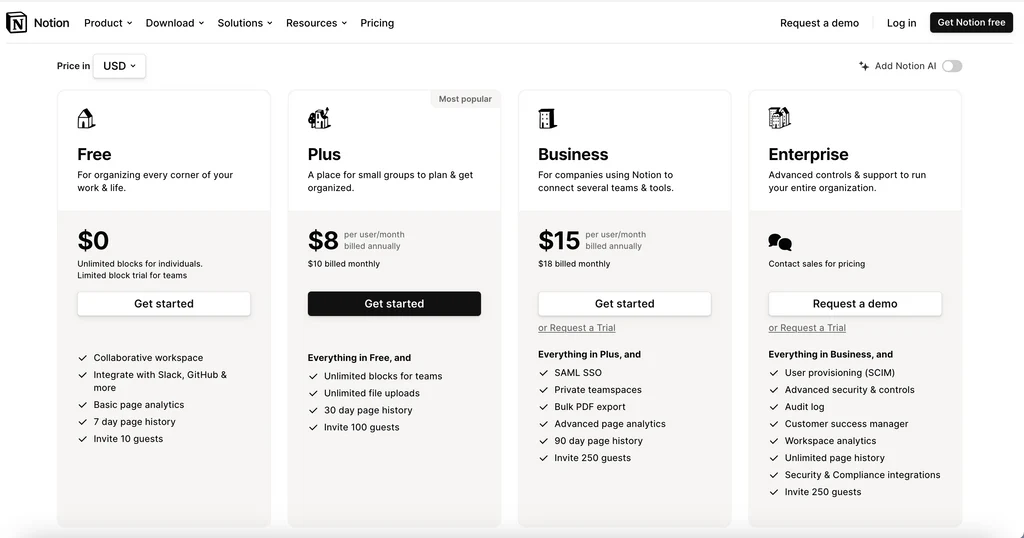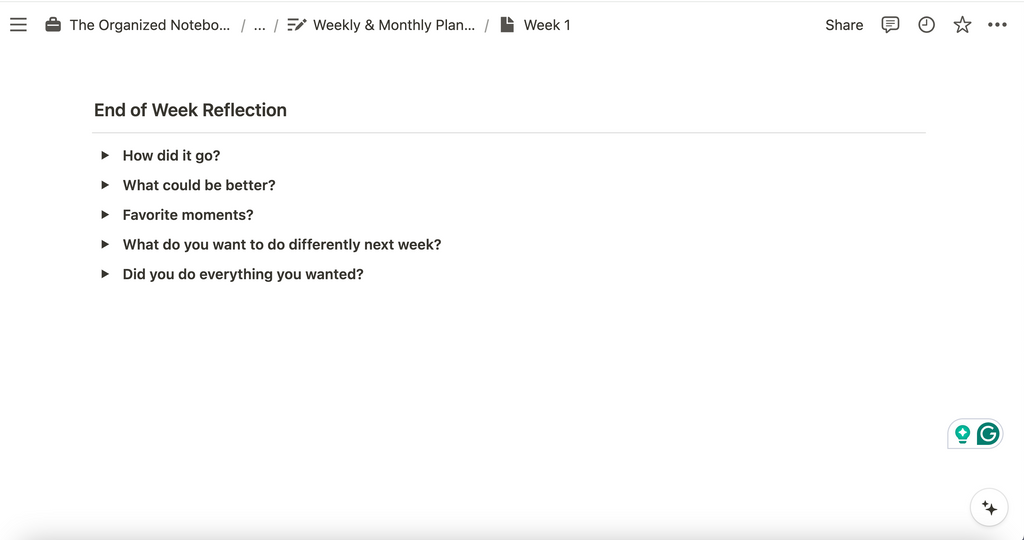How to Build a Daily Planner with Notion? | Easy Scheduling & Better Productivity
Share

Overwhelmed with tasks and struggling to manage daily life productively?
It's easy to feel overwhelmed by the numerous tasks that fill your day. These can range from work assignments to personal responsibilities, and the list seems to grow faster than you can manage. This constant flood of tasks makes you feel busy; yet, at the end of the day, you might wonder if you have achieved your goals. Managing daily life productively is a widespread challenge, particularly in our fast-paced society where multitasking is typical. Without appropriate tools and strategies, it may seem like you're perpetually trying to keep up instead of effectively managing your time and productivity.
This is where Notion can help! As a daily planner, Notion can change how you plan your day, manage your time, and get things done. Its versatile features allow you to create daily to-do lists, set reminders for important tasks, and even block out time for specific activities.
In this article, we will walk through how Notion can be the right tool for you as a daily planner, 5 game-changing tips when planning with Notion, and free resources to help you get started and master Notion!
Why Notion as a daily planner?
1. Free to use
Notion's free plan is more than sufficient for daily, weekly, or monthly planning. It provides unlimited blocks and pages for you to construct your planning hub. Moreover, it allows you to store everything in one location, including schedules, tasks, plan notes, and more.

Source: Notion Website, 2024
2. It can be an all-in-one planning hub
Notion can act as a centralized calendar, offering visual organization of tasks, events, and deadlines. It also supports time blocking, which aids in daily schedule planning and helps keep you on track with specific tasks and deadlines.
Moreover, you can easily set up a system to facilitate reflection at the end of the day, week or month. This can be incredibly useful in the process of reviewing past activities and adjust for future planning.

Source: The Organized Notebook, 2024
3. Powerful customization
The beauty of Notion lies in its flexibility. It can be as simple or as complex as you need it to be. You can create a basic daily planner with a simple list of tasks, or you can create a more complex system with different pages for different areas of your life, such as work, personal projects, health, and so on.
Top 5 Tips for Planning with Notion
1. Focus on your objectives & priorities when planning
Focusing on objectives and priorities when planning is crucial as it allows for efficient time allocation. This ensures that tasks with imminent deadlines are addressed promptly. Creating a daily roadmap based on your weekly goals can guide your actions and keep you aligned with your larger objectives.

Source: The Organized Notebook, 2024
2. Leverage time-blocking features
Using time-blocking features in Notion can significantly enhance your planning and productivity. By allocating specific time slots for different tasks or activities throughout your day, you can manage your time more effectively. This method helps avoid multitasking, which often leads to decreased productivity. It also provides a clear structure for your day, enabling you to focus on one task at a time and minimize distractions.
There are different ways to do time-blocking in Notion. You can start out easy with a simple table with different time slots. The other advanced method is to set up a calendar view database to show your schedule in a daily, weekly, and monthly view. We highly recommend the latter method as Notion's calendar view gives you a visual representation of your tasks and deadlines. This can help you stay on top of your schedule and prevent important tasks or appointments from falling through the cracks.
To learn more about Time-Blocking, check out our free workshop: How to BUILD a Time-blocking planner with Notion | Stay focused with time-blocking! https://www.youtube.com/watch?v=BBYkE-LMw9I&t=162s
3. Set up task priorities
Notion allows you to prioritize your tasks with different colors, tags, or even emojis to indicate which tasks are most urgent or important. This feature can help you focus on what really matters and prevent you from feeling overwhelmed by a long list of tasks. Without doubt, prioritizing tasks lets you concentrate on the most impactful activities first, reducing the stress of attempting too many tasks at once and helping maintain a balanced and productive schedule.
4. Review & Reflect
Reviewing and reflecting in a daily planner involves looking back at your completed tasks, assessing your productivity, and identifying areas for improvement. Typically, this can be done at the end of each day, week or month, depending on your preference.
This process involves asking yourself questions like:
- Did I complete all my goals?
- Were there any tasks that took longer than expected?
- Were there tasks that were left incomplete?
- What could be better?
- What should be done differently?
The importance of review and reflection lies in its ability to encourage continuous improvement. By regularly reviewing and reflecting on your daily planner, you can better understand your work habits, identify potential bottlenecks, and make necessary adjustments to improve your productivity. It also promotes self-awareness and helps you to stay focused on your goals.
In Notion, the review and reflection process can be facilitated by setting up a dedicated section in your daily planner for reflections. This could be a text block where you jot down your thoughts or a more structured template with specific questions to guide your reflection. Remember, the goal of the review and reflection process is not to judge your performance harshly but to understand your productivity patterns and make informed decisions for future planning.

5. Integrate with Notion Calendar & Google Calendar for a seamless planning experience.
Integrating your daily planner with the Notion Calendar is important for a seamless planning experience because it centralizes your schedules, tasks, and deadlines in one place. You can see your entire schedule at a glance, without switching between different tools or platforms. It also allows you to easily move tasks around and adjust your schedule as you wish.
Moreover, Notion offers a quick and easy way to connect Notion Calendar with Google Calendar. The integration with Google Calendar ensures that you can sync your external scheduling and events in one single calendar. This way, you can avoid conflicts between schedules and ensure that you're always on top of all your commitments.
Check out our full guide on Notion Calendar & Google Calendar below:
MASTER your schedule with Notion Calendar? | Full Guide (2024)
10 Must-Know Google Calendar Tips for Easy Scheduling & Productive Workflow
Excited to learn how to use Notion as a daily planner?
Wait no more and join our Workshop: How to Build a Daily Planner with Notion? | Easy Scheduling & Better Productivity
In this workshop, we'll guide you through creating a simple daily and monthly planner using Notion. From organizing your daily schedules to managing your monthly calendar, we've got you covered!
Join us, ask us any questions, and make the best out of your productivity journey!